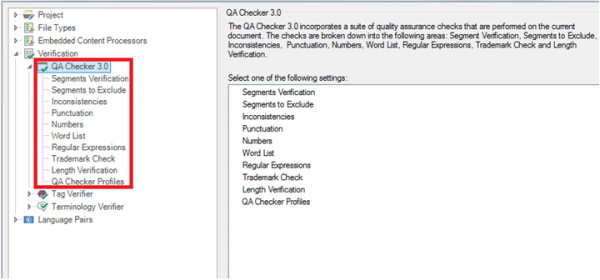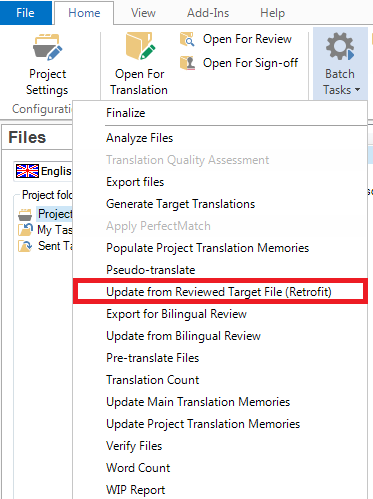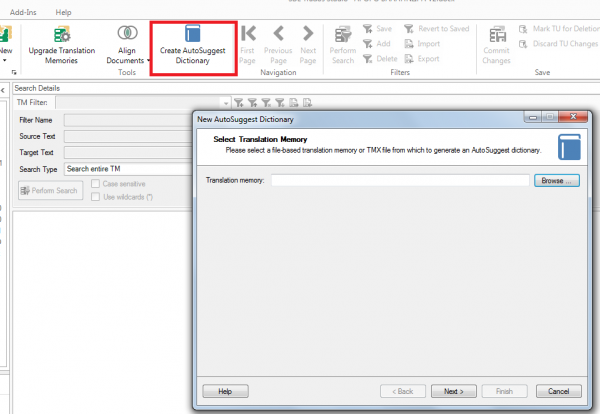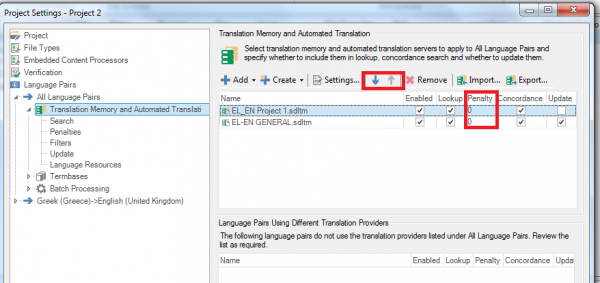Συνέντευξη του μήνα – Ιωάννα Καραμήτσα
Μεταφράστρια – Digital nomad

Είσαι η πρώτη Ελληνίδα μεταφράστρια “digital nomad” που συναντούμε. Πώς πήρες αυτή την απόφαση και πόσο καιρό ταξιδεύεις;
Ξεκινάς με την πιο δύσκολη ερώτηση γιατί, πραγματικά, ούτε και εγώ ξέρω πώς την πήρα αυτή την απόφαση! Ως χαρακτήρας ήμουν πάντα πολύ ανασφαλής και ποτέ δεν είχα ταξιδέψει μόνη μου. Όταν, πριν από 14 χρόνια, αποφάσισα να ασχοληθώ με τη μετάφραση, στόχος μου ήταν να μπορέσω να εργάζομαι από το σπίτι όταν θα αποκτούσα την δική μου οικογένεια. Αυτό το όνειρο με τα χρόνια άλλαξε. Το 2011 μετακόμισα στην Ολλανδία και εκεί ήταν που άρχισα να έρχομαι σε επαφή με μια πραγματικότητα πολύ διαφορετική από εκείνη που ζούσα στην Ελλάδα. Ως μεταφράστρια, με το γραφείο μου να είναι το ίδιο μου το σπίτι, δεν είχα ιδιαίτερη κοινωνική ζωή.
Έτσι έψαξα να βρω τρόπους να κοινωνικοποιηθώ και να δημιουργήσω έναν κύκλο. Το 2013 ξεκίνησα να ασχολούμαι με το CrossFit, το οποίο με δυνάμωσε όχι μόνο σωματικά αλλά και πνευματικά. Έγινα μέλος μιας παγκόσμιας κοινότητας ανθρώπων που θα αδικούσα αν την περιέγραφα με μερικές, μόνο, λέξεις αλλά και της «δικής μας» μικρής, τοπικής κοινότητας του UnScared CrossFit στην Ουτρέχτη. Σε αυτή την παγκόσμια κοινότητα του CrossFit στηρίχτηκα για να ξεκινήσω τα ταξίδια μου. Σε κάθε χώρα που θα πήγαινα, θα έκανα επαφή με την τοπική κοινότητα και έτσι θα είχα μια «οικογένεια» σε κάθε μέρος του κόσμου. Αυτό θα μου έδινε την αίσθηση της ‘ασφάλειας’ που χρειαζόμουν.
Ξεκίνησα, λοιπόν, ένα ιστολόγιο www.theboxtrotter.com αρχικά μιλώντας για τους φόβους και τις προσδοκίες μου, για την οργάνωση του ταξιδιού μου και όλα όσα πέρναγαν καθημερινά από το μυαλό μου. Ψάχνοντας στο Facebook και μιλώντας για τα σχέδιά μου με φίλους και γνωστούς, βρήκα το ‘A Home For CrossFitters’ (H4CF) μια σελίδα που δημιούργησε ένα ζευγάρι στη Γερμανία με σκοπό να βοηθήσει τους crossfitters που ταξιδεύουν να έρθουν σε επαφή με την τοπική κοινότητα, ακόμη και να φιλοξενηθούν από συναθλητές. Την πρώτη φορά που έγραψα σε αυτή τη σελίδασχετικά με το τι πρόκειται να κάνω, έλαβα μέσα σε μερικές μόνο ώρες προσκλήσεις για να ταξιδέψω σε Γερμανία, Αυστρία, Αυστραλία, Τουρκία και Γαλλία από άλλα μέλη της κοινότητας που ήθελαν να με φιλοξενήσουνκαι να προπονηθούμε παρέα. Στην αρχή οι περισσότεροι νόμιζαν ότι αυτό είναι και το επάγγελμά μου.. ότι έχω κάποιο εισόδημα από το ιστολόγιο ή ότι πληρώνομαι για να ταξιδεύω. Μακάρι να ήταν έτσι! Δεν είχα μέχρι τότε συνειδητοποιήσει πόσο τυχερή είμαι που έχω διαλέξει ένα επάγγελμα που μου επιτρέπει να ακολουθήσω αυτό τον τρόπο ζωής και το μόνο που, ουσιαστικά, χρειάζομαι για να συνεχίσω να ταξιδεύω είναι τον υπολογιστή μου και πρόσβαση στο διαδίκτυο.
Οργάνωσα, λοιπόν, το πρώτο μου ταξίδι τον Οκτώβριο του 2015. Δειλά. Πολύ δειλά. Πρώτος προορισμός ήταν στη Γερμανία για 6 μόνο ημέρες. Ένα, μόλις, μικρό βηματάκι από το σπίτι, περισσότερο για να πειραματιστώ και να αποδείξω στον εαυτό μου ότι μπορώ. Η υποδοχή που είχα ήταν τόσο ζεστή και πραγματικά δεν το περίμενα να δημιουργήσω τέτοιους δεσμούς με άτομα που ήταν μέχρι πρόσφατα απλά ‘ξένοι’. Έκτοτε ταξίδεψα σε Ελλάδα, Ιταλία και τώρα βρίσκομαι (για λίγο ακόμα) στη Βραζιλία.
Είναι όλα τόσο αλληλένδετα όταν ταξιδεύεις και εργάζεσαι ταυτόχρονα. Μου δίνεται η δυνατότητα να εμπνεύσω και να εμπνευστώ. Η δουλειά μου είναι στο σπίτι μου και το σπίτι μου είναι ο κόσμος όλος.
Με ποια κριτήρια επιλέγεις την επόμενη χώρα στην οποία θα πας; Η γλώσσα παίζει ρόλο για σένα;
Τις πρώτες χώρες στις οποίες ταξίδεψα τις επέλεξα βάσει των προσκλήσεων που είχα λάβει (Γερμανία, Ελλάδα, Ιταλία). Στην Ιταλία, μια Κυριακή χαζεύοντας το χάρτη του CrossFit με όλα τα γυμναστήρια ανά τον κόσμο είχα σαν κριτήριο να βρω μια περιοχή με ήλιο, θάλασσα και, βεβαίως, γυμναστήρια CrossFit. Είχα ήδη ζήσει δυο μήνες στο Μιλάνο, ο χειμώνας με είχε κουράσει και χρειαζόμουν μια αλλαγή… Κατέληξα στο Νατάλ. Μπήκα στο google να δω φωτογραφίες της περιοχής, επικοινώνησα με τα τοπικά γυμναστήρια και βρέθηκε ένα που με βοήθησε να βρω ένα διαμέρισμα για 1-2 μήνες αλλά, το σημαντικότερο, μου έδωσε την αίσθηση ότι δεν θα είμαι μόνη, ότι κάποιος θα είναι εκεί να με περιμένει.
Η αλήθεια είναι ότι οι επιλογές μου μέχρι στιγμής γίνονται πολύ αυθόρμητα. Έφτασα στην Βραζιλία χωρίς να ξέρω τα βασικά για τη χώρα, χωρίς να κάνω οποιαδήποτε έρευνα. Η γλώσσα, όσο και αν μου αρέσει να την ακούω, είναι πάρα πολύ δύσκολη και έχει αποτελέσει εμπόδιο στην επικοινωνία μου. Συνειδητοποιώ ότι συναναστρέφομαι με άτομα απλά και μόνο επειδή μιλάνε αγγλικά (άτομα που ίσως ποτέ δεν θα μου τραβούσαν την προσοχή υπο άλλες συνθήκες), αλλά και ότι χάνω πολλές ενδιαφέρουσες συζητήσεις με ντόπιους μην μπορώντας να μιλήσω τη γλώσσα. Ίσως μετά την εμπειρία της Βραζιλίας, να αρχίσω να λαμβάνω υπόψη μου την γλώσσα στην επιλογή των επόμενων προορισμών μου. Ίσως, εν μέρει, γι’αυτό να διάλεξα μετά από εδώ να επισκεφτώ τον Καναδά.
Πόσο εύκολο/ δύσκολο είναι για έναν μεταφραστή να δουλεύει και να ταξιδεύει ταυτόχρονα; Τι δυσκολίες έχεις αντιμετωπίσει (από άποψη λογιστικών, ασφαλιστικών, αλλά και πρακτικών θεμάτων);
Τίποτα δεν είναι εύκολο και τίποτα δεν είναι ακατόρθωτο. Στην περίπτωσή μου, θεωρώ πολύ σημαντικό το γεγονός ότι πριν ξεκινήσω να ταξιδεύω είχα ήδη μια πελατειακή βάση που μου εξασφάλιζε ένα εισόδημα κατά μέσο όρο επαρκές για μια λιτή ζωή, την οποία σαφώς δεν έχτισα από τη μια μέρα στην άλλη. Παρά το γεγονός ότι εργάζομαι ως μεταφράστρια ήδη 14 χρόνια, δεν έχω κανένα συμβόλαιο για συνεχή ροή projects. Γνωρίζω, όμως, ότι με ένα σχετικό ‘μαξιλαράκι’ για τους δύσκολους μήνες και μειώνοντας τα έξοδά μου όσο το δυνατό, μπορώ να συνεχίσω να ταξιδεύω για όσο το αντέχω και το επιθυμώ.
Επίσης, έχω επιλέξει να μην είμαι «με ένα σακίδιο στον ώμο» διαρκώς, αλλά να μένω μερικούς μήνες σε κάθε χώρα που επισκέπτομαι, για διάφορους λόγους. Καταρχάς, ως άτομο χρειάζομαι χρόνο για να προσαρμοστώ στο νέο μου περιβάλλον, να νιώσω οικεία. Δεν βρίσκομαι σε μόνιμες διακοπές, όπως νομίζουν οι περισσότεροι. Σε κάθε χώρα που ταξιδεύω το πρώτο πράγμα που διευθετώ είναι να έχω πρόσβαση στο διαδίκτυο, έστω μέσω κινητού. Χωρίς ιντερνετ, θα χάσω δουλειές. Επίσης, δεδομένου ότι στο μεγαλύτερο μέρος τους οι πελάτες μου βρίσκονται στην Αγγλία, πρέπει να φροντίζω να είμαι διαθέσιμη (έστω ξύπνια!) τις εργάσιμες ημέρες και ώρες της Αγγλίας. Εντός Ευρώπης, αυτό δεν ήταν ποτέ πρόβλημα. Όντας όμως στη Βραζιλία έχω αναγκαστεί να ξυπνάω πολύ πιο νωρίς για να απαντάω στα μηνύματά μου και πρέπει πάντα να λαμβάνω υπόψη μου την διαφορά της ώρας για την παράδοση των εργασιών μου.
Ανασφάλεια υπάρχει, όπως σε κάθε ελεύθερο επάγγελμα, αλλά και λόγω χαρακτήρα. Ιδιαίτερα δε όταν είσαι μακριά από το σπίτι σου, την οικογένειά σου και την ασφάλεια που όλα αυτά σου προσφέρουν, είναι ακόμα πιο δύσκολο να αντιμετωπίσεις τους «δύσκολους» μήνες, όταν κάθεσαι μπροστά στον υπολογιστή και περιμένεις να έρθει έστω ένα πιστοποιητικό προς μετάφραση. Μια άλλη παράμετρος που δεν είχα λάβει αρχικά υπόψη είναι η ποιότητα της σύνδεσης στο διαδίκτυο. Σίγουρα σε καμία περίπτωση δεν χρειάζομαι το γρηγορότερο ιντερνετ που υπάρχει, αλλά όταν πριν μερικές εβδομάδες κόπηκε το ρεύμα (και συνεπώς και το ιντερνετ) σε όλο το χωριό (επί του παρόντος είμαι στην Τζερικοακοάρα, στη Βραζιλία) και δεν γνώριζα πότε θα επανερχόταν, με έπιασε πανικός. Είχα να παραδώσω 3 εργασίες μέχρι το βράδυ, τις οποίες ευτυχώς ολοκλήρωσα μιας και ο φορητός μου υπολογιστής ήταν πλήρως φορτισμένος, αλλά πώς θα τις έστελνα; Έμεινα χωρίς ρεύμα για πάνω από 7 ώρες. Ίσως οι δυσκολότερες 7 ώρες των τελευταίων μηνών σε εργασιακό επίπεδο.
Όσον αφορά στα λογιστικά και ασφαλιστικά μου ζητήματα, πιστεύω πως είμαι πολύ τυχερή μιας και η έδρα μου είναι στην Ολλανδία και μπορώ να τα διευθετήσω όλα ηλεκτρονικά. Έχω την βοήθεια του λογιστή μου, εάν χρειαστεί, οπότε είμαι καλυμμένη από κάθε άποψη.
Τι συμβουλή θα έδινες σε άτομα του κλάδου που ενδιαφέρονται να κάνουν κάτι ανάλογο;
Όπως ανέφερα και παραπάνω, θεωρώ ότι πριν ξεκινήσει κανείς αυτό τον τρόπο ζωής, είναι σημαντικό να έχει ένα σταθερό όσο το δυνατό πελατολόγιο και ροή εργασιών που να του εξασφαλίζει ότι θα καλύπτει τα πάγια μηνιαία έξοδά του (συνταξιοδοτικό/ασφαλιστικό πρόγραμμα, φόροι, διαμονή κλπ.) ή/και τον τρόπο ζωής που θέλει να ακολουθήσει. Επιπλέον, δεν θα μπορούσα να φανταστώ να κάνω αυτή τη ζωή χωρίς να έχω κάποιες έστω αποταμιεύσεις που μου προσφέρουν λίγη πνευματική ηρεμία. Το digital nomad lifestyle είναι υπέροχο αλλά και απαιτητικό. Πρέπει να μπορείς να προσαρμοστείς γρήγορα σε ό,τι προκύπτει σε ένα μέρος που δεν σου είναι οικείο και να στηρίζεσαι απόλυτα στον εαυτό σου. Όλα αυτά σε συνδυασμό με το ότι πρέπει να είσαι διαθέσιμος για δουλειά ανά πάσα στιγμή, να απαντάς σε emails και να τηρείς τις προθεσμίες παράδοσης των εργασιών σου! Χρειάζεται να έχεις το «μικρόβιο» του ταξιδιώτη, να μπορείς να αποδεχθείς ότι θα περνάς διαστήματα ολομόναχος, ότι θα σου λείπει μια οικεία παρουσία και μια αγκαλιά από έναν άνθρωπο «δικό σου». Προσωπικά, γνωρίζοντας ότι αυτός θα ήταν ένας παράγοντας που θα με δυσκόλευε πολύ, έχτισα ένα δίκτυο υποστήριξης γύρω μου αποτελούμενο από ανθρώπους στους οποίους μπορώ να στηριχτώ ανά πάσα ώρα και στιγμή, έστω από απόσταση. Πρόκειται για μια διαρκή εξερεύνηση όχι μόνο του κόσμου, αλλά και του εαυτού μας, και δυστυχώς δεν είναι όλοι έτοιμοι να έρθουν αντιμέτωποι με τον ίδιο τους τον εαυτό. Μιλάω εκ πείρας.
Εάν όμως μπορούσα να δώσω μόνο ΜΙΑ συμβουλή, αυτή θα ήταν ‘Go for it!’. Πάρε το ρίσκο και ακόμα και αν δεν πετύχεις με την πρώτη, θα έχεις αποκομίσει από την εμπειρία αυτή ανεκτίμητη γνώση και δύναμη, εφόδια που θα βρουν εφαρμογή σίγουρα στα επόμενα βήματα που θα ακολουθήσεις.
Ποια είναι τα οφέλη από αυτόν τον τρόπο ζωής στη δουλειά σου και στη γενικότερη αντίληψή σου;
Μέσα από τα ταξίδια μου μαζεύω εμπειρίες, διευρύνω τους ορίζοντες μου και ολοκληρώνομαι περισσότερο ως άνθρωπος, και αυτό έχει σίγουρα επηρεάσει και τον τρόπο με τον οποίο εργάζομαι. Ξέφυγα από έναν «κλειστό» και φαύλο κύκλο και εξέθεσα τον εαυτό μου σε νέες προκλήσεις που με έμαθαν να σκέφτομαι εναλλακτικά, να προσπαθώ να βρω την ευκαιρία εκεί που οι άλλοι βλέπουν το πρόβλημα, να ελέγχω καλύτερα το άγχος μου αλλά και τα οικονομικά μου. Ταξιδεύοντας σε μέρη που με εμπνέουν, συνειδητοποιώ ότι έχω περισσότερο ποιοτικό χρόνο να αφιερώσω στη δουλειά μου και την κάνω με ακόμη μεγαλύτερη ευχαρίστηση.
Ανταλλάσσω απόψεις και παίρνω ιδέες από ανθρώπους που υπό άλλες συνθήκες δεν θα γνώριζα ποτέ μου. Μαθαίνω για τον τρόπο με τον οποίο εργάζονται άλλοι digital nomads, γεγονός που μου έχει δώσει πολλές «έξυπνες» πρακτικές λύσεις σε καθημερινά εργασιακά ζητήματα, αλλά και καινούργιους τρόπους να γίνω πιο παραγωγική. Οι άνθρωποι που έρχονται στον δρόμο μου έχουν όλοι κάτι να μου προσφέρουν. Μπορεί να είναι κάτι άμεσα εφαρμόσιμο στην μεταφραστική μου εργασία ή, συνήθως, κάτι που θα ανακινήσει νέες σκέψεις και θα προκαλέσει νέες ιδέες στο μυαλό μου. Σκέψεις και ιδέες που κάποια στιγμή θα βρουν τον τρόπο να μετατραπούν σε επιχειρηματική ευκαιρία ή θα μου δώσουν κάποιο πλεονέκτημα εκεί που δεν θα το περιμένω.
Τα ταξίδια μου με έχουν «αφυπνήσει» πνευματικά. Είναι μια απύθμενη δεξαμενή εμπειριών που θα κρατάω μέσα μου για όλη την υπόλοιπη ζωή μου. Έχω την ελευθερία να εξερευνώ τον κόσμο και να επισκέπτομαι μέρη που ίσως ποτέ να μην κατάφερνα να δω, εάν είχα μόνο 25 ημέρες το χρόνο άδεια. Έχω έρθει σε επαφή με τόσο διαφορετικούς πολιτισμούς και έχω λάβει ανέλπιστα πολλή θετική ενέργεια και βοήθεια. Έχω αδράξει και εγώ με τη σειρά μου την ευκαιρία να βοηθήσω, όπου μπορώ και όποιον μπορώ, τόσο απλόχερα όσο μου προσφέρθηκε και εμένα, και αυτό από μόνο του με γεμίζει χαρά και ικανοποίηση. Νιώθω ότι γίνομαι καλύτερος άνθρωπος, με την δική μου, φυσικά, ερμηνεία του όρου.
Είναι όλα τόσο αλληλένδετα όταν ταξιδεύεις και εργάζεσαι ταυτόχρονα. Μου δίνεται η δυνατότητα να εμπνεύσω και να εμπνευστώ. Η δουλειά μου είναι στο σπίτι μου και το σπίτι μου είναι ο κόσμος όλος.
*****************************************************************
Interview of the month – Ioanna Karamitsa
Translator-Digital nomad

*Translated into English by Ioanna Karamitsa.
You are the first Greek “digital nomad” translator we have come across. How did you decide to do this and how long have you been travelling?*
You’re starting off with the toughest question because I really have no idea how I ended up making this decision! I have always been an insecure person and had never in the past traveled alone. Fourteen years ago, when I decided to take up translations, my goal was to be able to work from home when the time would come for me to have my own family. Through the years this dream changed. In 2011, I moved to the Netherlands where I came in contact with a reality much more different than the one I was used to in Greece. Being a translator working from home I really had no social life.
So, I started looking for ways to socialize and become part of a community. In 2013, I started doing CrossFit, which made me stronger not only physically but also mentally. I joined a global community of people whom I would not be doing any justice trying to describe in only a few words; but also ‘our own’ local community at UnScared CrossFit in Utrecht. I leaned on this community of crossfitters to start my travels. In every country that I would visit, I would contact the local community and would have a ‘family’ in every part of the world. This would be my safety net.
I started blogging at www.theboxtrotter.com initially writing about my fears and expectations, about organizing my journey and everything that would cross my mind on a daily basis. Scrolling through Facebook and talking about my plans with friends I came across a group called ‘A Home For CrossFitters’ (H4CF) created by a young couple in Germany with the aim to helping travelling crossfitters get in contact with the local community and possibly be hosted by fellow athletes. Within just hours from the first time I posted on that group about what I was planning to do I got invites to travel to Germany, Austria, Australia, Turkey and France to be hosted by other members of our community and train with them. At first, most people thought that this was my occupation.. that I am making money from blogging or that I am getting paid to travel. I wish! Until that time I had not realized how lucky I am to have chosen a job that allows me to lead this lifestyle and that the only thing I actually needed was a laptop and access to the internet in order to keep going.
So I planned my first trip in October 2015. Baby steps out of my comfort zone. My first destination was Germany only for 6 days. Just a short ride from home more of an experiment and to prove to myself that I can do this. I was given such a warm welcome! I honestly did not expect to create such bonds with people that not long ago were just ‘strangers’. Since then I travelled to Greece, Italy and I am now (for a few more weeks) in Brazil.
It is all so interrelated when you travel and work at the same time. I am given the opportunity to inspire and be inspired. My work is at home and my home is the world.
How do you pick your next destination? Is language an important factor for you?
I chose the first countries I visited on the basis of the invites I had (Germany, Greece, Italy). In Italy, on a Sunday going through the CrossFit affiliates map with all the gyms worldwide, my criterion was to find a location with sun, sea and, of course, CrossFit gyms. I’d already spent two months in Milano, tired of the winter and in need of a change… I ended up choosing Natal. I googled pictures of the place, contacted the local gyms and got help from one of them in finding an apartment for 1-2 months, but most importantly, I was given the feeling I will not be alone, that there will be someone waiting for me.
The truth is that my choices so far have been very spontaneous. I came to Brazil without knowing the basics about the country, without having made any research whatsoever. The language, regardless of how much I like listening to it, is quite difficult and has been an impediment in communicating. I realized that I am around people only cause they speak English (when I would probably not have any interest in them under other circumstances), but also that I am missing out on many interesting conversations with locals just because I don’t speak Portuguese. Perhaps after my experience in Brazil I will start taking into account the language when selecting my next destinations. Maybe in part this is why I picked Canada as my next destination.
How easy/hard is it for a translator to work and travel at the same time? What difficulties have you encountered (in terms of accounting, insurance and other practical issues)?
Nothing is easy and nothing is impossible. In my case, I believe it was important that before I started travelling I already had a client base securing an income that is on average enough for me to lead a simple life; of course, this client base was not built overnight. Despite the fact that I have been working as a translator for 14 years, I have no contract ensuring a steady workflow. I do know, however, that with some savings for the tough months and by reducing my expenses as much as possible, I can continue travelling for as long as I can and want to.
Moreover, I have chosen to not be a traditional ‘backpacker’ constantly on the move, rather for various reasons I stay a few months in each country I visit. First of all, I need time to adjust to my new environment and feel at home. I am not on constant holidays as many people might think. The first thing I make sure to arrange in every country I visit is to have uninterrupted access to the internet, albeit via mobile. No internet means no income. In addition, given that the majority of my clients are located in the UK, I must make sure I am available (or at least awake!) during UK working days and hours. This was never a problem within Europe. However, being in Brazil, I have to wake up much earlier in order to answer to my emails and must always take into account the time difference when delivering my projects.
Insecurity is a given when you work freelance I think, but it is also one of my core characteristics. Especially when you are away from home, family and the safety they offer, it may be even harder to deal with the ‘hard’ months when you sit in front of your laptop waiting to get at least a certificate to translate. Another factor I had not thought of initially is internet quality. Of course I do not require an ultra-fast connection to work, but when a few weeks ago there was a power cut (and therefore no internet) in the whole village (I am in Jericoacoara, Brazil at the moment) and I had no idea when it would be restored, I panicked. I had to deliver 3 projects later that evening, which I had finished as my laptop was fully charged, but.. how was I going to send them? I was without power for over 7 hours. Maybe my worst 7 hours of the past months in terms of work.
With regards to accounting and insurance issues, I think I am very lucky as my seat is in the Netherlands and it can all be settled remotely and online. I also get help from an accountant, if necessary, so I feel I am fully covered.
What would you advise other translators interested in pursuing something similar?
As mentioned above, I believe that before embarking on such a life journey it is important to have in place a client base and some workflow securing that all fixed monthly expenses are covered (pension, insurance, taxes, accommodation etc.) and/or the lifestyle each one wants to lead. I could never imagine having this lifestyle without having at least some savings, which keep my stress levels to a manageable level. The digital nomad’s life is incredible but it is also demanding. You must be able to adapt fast to whatever might come up in an unfamiliar place knowing you can only count on yourself – not to mention you still need to be available to take on work, respond to emails and meet your deadlines! You need to have the ‘bug’; to accept that there will be times you will have to be completely on your own, you will miss seeing a familiar face and get a hug from a person that’s ‘yours’. Personally, knowing that this would be a factor that would make it harder for me, I built a support network around me made of people I can trust and turn to at any time, even if they are far away. This is a constant exploration not only of the world, but of ourselves as well and unfortunately not everyone is ready to confront their own self. I know so.
But if I could only give ONE piece of advice, that would be ‘Go for it!’. Take your chances and even if you don’t succeed the first time, you will have acquired priceless knowledge and strength from this experience, which you will definitely use during your next steps.
What are the benefits of this lifestyle for your work and your general perception of the world?
Through my travels I gather experiences, open my mind and grow as a person and this has certainly affected the way in which I work too. I managed to get out of a vicious circle and exposed myself to new challenges that taught me how to think out of the box, to try to find opportunities where others see a problem, to manage my stress levels and my finances in a much better way. I realize that travelling to places that inspire me gives me more quality time to devote to my work and I do it with even more pleasure.
I exchange views with and get ideas from people whom I would have never met under different circumstances. I hear about the way in which other digital nomads work, which has given me many ‘smart’ solutions on day-to-day business issues, but also new ways of becoming more productive. The people I crossed paths with all contributed in a way. Be it something immediately applicable to my translation business or something that will bring up new thoughts and ideas in my mind. Thoughts and ideas that will at some point, sooner or later, find their way into becoming a business opportunity or will give me an advantage when I least expect it.
I have been awakened through my travels. It is like a river of experiences that never stops flowing. I am free to explore the world and visit places that I would probably never have the opportunity to see had I been counting on 25 days of leave per year. I’ve been exposed to cultures so different and have received so much positive energy and help. I too have seized the chance to offer my help to whoever I can, whenever I can, as openhandedly as I have been helped and this fact in itself fills me with joy and satisfaction. I feel I am becoming a better version of myself – in my own interpretation of the term, of course.
It is all so interrelated when you travel and work at the same time. I am given the opportunity to inspire and be inspired. My work is at home and my home is the world.









